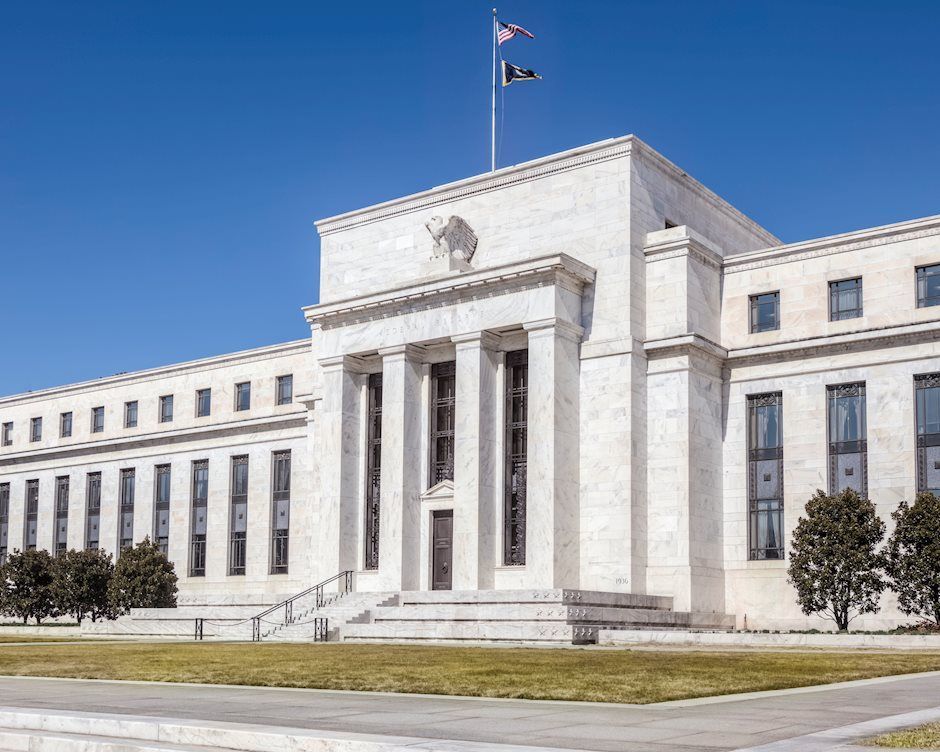Powell pledges to beat inflation even if it causes recession and job losses

Powell held remarkably firm in Congressional testimony. Many don't believe what he has to say.
Jerome Powell at FOMC meeting on June 15, 2022 from the Fed's website.
Handling an economic slowdown
Powell testified before Congress on June 22 and June 23 on inflation and an economic slowdown.
At the Congressional sessions, Powell Was Pressed Over How Fed Would Respond to Economic Slowdown.
- “We can’t fail on this. We really have to get inflation down,” Mr. Powell said during the second of two days of testimony.
- “We’re going to want to see evidence that it really is coming down before we declare ‘mission accomplished"
- “In that hypothetical situation [that growth stalled and unemployment rose] , that would be a setting in which inflation could be expected to come down,” Mr. Powell said. He added, “I think we’d be reluctant to cut.”
-
Rep. Alexandria Ocasio-Cortez (D., N.Y.) pressed Mr. Powell to endorse other methods to bring down inflation, such as stiffer antitrust regulation or price controls. Mr. Powell demurred. “There’s been a long history of price controls” when inflation is high, he said, “and it has not been a successful one.”
-
Mr. Powell tried to avoid getting pinned down in a partisan fight, but at one point, he allowed that an increase in energy production could bring down gas prices. “Obviously, the more supply there is, the more the price can go down,” he said.
-
Powell pushed back against the idea that corporate greed was a primary driver of high inflation. “It is not at all clear that there is a connection between a more concentrated economy and, for example, inflation,” Mr. Powell said.
-
To a question as to whether war was responsible for inflation, “No,” Mr. Powell responded. “Inflation was high before—certainly before the war in Ukraine broke out.”
Powell synopsis
It's not Putin's fault. Price controls don't work. It's not price gouging by big corporations. More oil production would help.
With that, Powell blasted the position of president Biden, senator Elizabeth Warren, and all the Progressives.
The most important takeaway is Powell's position that the Fed will stick to its course of beating inflation even at the expense of recession and job losses.
Unfortunately, there is no link to the Q&A session, just Powell's Prepared Remarks.
Powell prepared remarks conclude:
Inflation has obviously surprised to the upside over the past year, and further surprises could be in store. We therefore will need to be nimble in responding to incoming data and the evolving outlook. And we will strive to avoid adding uncertainty in what is already an extraordinarily challenging and uncertain time. We are highly attentive to inflation risks and determined to take the measures necessary to restore price stability. The American economy is very strong and well positioned to handle tighter monetary policy.
To conclude, we understand that our actions affect communities, families, and businesses across the country. Everything we do is in service to our public mission. We at the Fed will do everything we can to achieve our maximum-employment and price-stability goals.
Thank you. I am happy to take your questions.
What about quantitative tightening (QT)?
SLR is the supplementary leverage ratio with which banks calculate the amount of common equity capital they must hold relative to their total leverage exposure. Large US banks must hold 3%.
RRP (next Tweet) stands for Reverse Repro agreement.
Continuing along, IORB is Interest on Reserve Balances and MMF stands for Money Market Funds, and WAM is Weighted Average Maturity.
This discussion is not easy to understand. My point is to show it's not that simple to say "just do it."
Damn the asset bubbles on the way up, QE is a lot easier to conduct than QT. It's hard to slowly let air out of a bubble using a pin as a tool.
Blunt instrument or a pin?
Tail or tale?
What does Powell believe?
Do Powell and Treasury Secretary Yellen really believe the Fed can concoct a soft landing?
Will Powell do what he says?
That's really what it boils down to.
Most market followers believe the Fed will blink.
My position is a bit different. I think the Fed is so fearful of inflation now, they actually overshoot neutral by a lot. Neutral is the magic rate that is neither simulative nor recessionary.
Where is neutral?
To bring down inflation, Chicago Fed President Charles Evans said the Fed might have to hike above neutral.
The Fed does not know where neutral is, neither do I, nor does anyone else. Only a free market in rates can possibly find it.
Thus, the Fed is constantly chasing its tail. Also, the Fed is "constantly chasing its fairy tale."
Given massive debt levels and leverage, I suspect neutral is far lower than nearly everyone I follow.
And if the Fed does overshoot neutral by a lot, yes, it will hammer inflation via demand destruction and reverse wealth impact.
For discussion, please see The Fed Searches For the Neutral Interest Rate, Where the Heck Is It?
US is in recession now, Q&A on why
Meanwhile, I'm tired of this nonsense that a recession might be coming and the Fed might deliver a soft landing,
Regarding the Fed's fairy tale, I've Seen Enough, the US is in Recession Now, Q&A on Why
Recession is here already. The question is not whether we have a recession, but rather how deep and how long.
I will address that in a separate post.
Author

Mike “Mish” Shedlock's
Sitka Pacific Capital Management,Llc






















